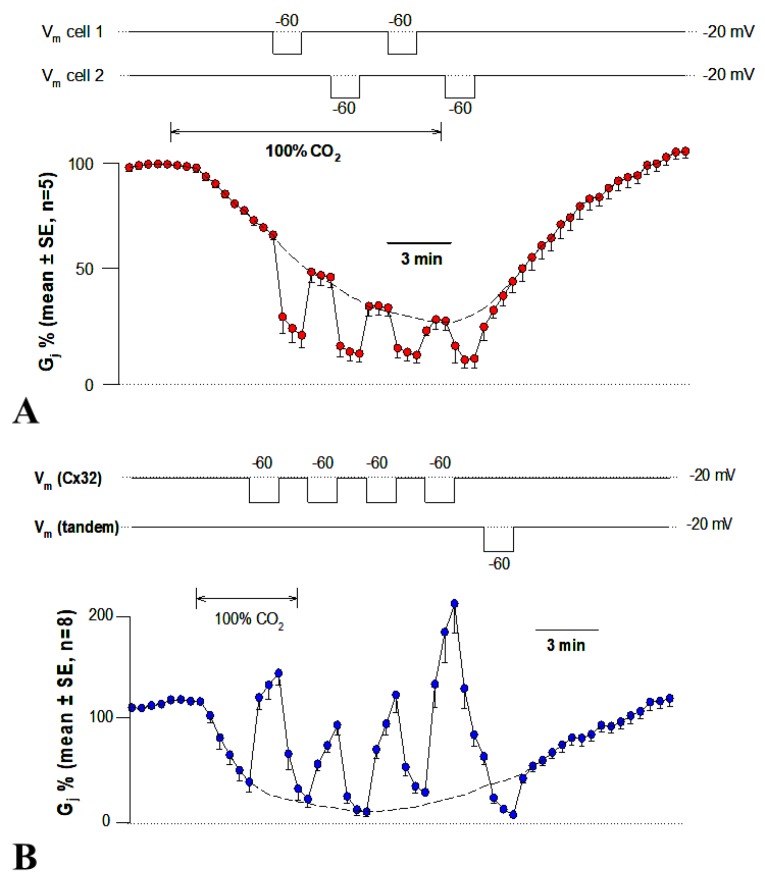Figure 15.
Junctional conductance (Gj) and Vj sensitivity monitored in Xenopus oocyte pairs expressing homotypic Cx32 (32–32; A) or tandem–Cx32 (tandem-32; B) channels, exposed to 100% CO2. With 32–32 channels, 40 mV Vj-gradients of either polarity always cause a Gj drop (A). In contrast, with tandem–32 channels, Gj increases with 40 mV Vj-gradients positive at the mutant side, and decreases with negative Vj (B). The effect of positive Vj progressively decreases as uncoupling progresses (B). This confirms evidence that the chemical/slow gate is Vj-sensitive, and suggests that there are two gating states: Vj-reversible and Vj-irreversible. Adapted from Reference [135].

